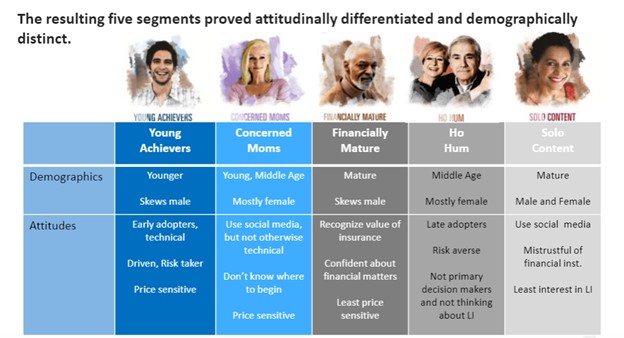10 min to read
In a world where prioritizing health's is crucial, starting a health insurance company can be both an profitable endeavor and solving a lot of costumer problems. With the increasing demand, for comprehensive healthcare coverage now might be time to embark on this journey. However successfully navigating the landscape of health insurance requires planning, a thorough understanding of the industry and a commitment to providing invaluable services to those in need.
In this article we will take you through the elements and strategies necessary for establishing your own health insurance company. Here are the steps to follow;
Conduct Comprehensive Market Research
Conducting comprehensive market research is a fundamental step in establishing a successful health insurance company. It involves gathering in-depth insights into the healthcare insurance landscape, including understanding the specific needs and preferences of your target audience.
For instance, you have to know the criteria used in selecting a UAE travel insurance and evaluating the pricing structures and coverage options that are most appealing to potential customers if investing in UAE. This research entails analyzing market trends, assessing the competitive landscape, and identifying potential gaps or opportunities in the market.
By delving into demographic data, healthcare expenditure patterns, and consumer behaviors, you can tailor your insurance products and pricing strategies to meet the unique demands of your prospective policyholders.
Develop a Business Plan
Creating a business plan plays a role, in establishing a health insurance company. This important document acts as a guide for your companys vision and strategy laying out mission statements, objectives and financial forecasts. It also covers market analysis, competitive positioning and the target audience.
Your business plan provides a framework for making decisions ensuring that your insurance products, pricing strategies and operational tactics align with your business goals. It is a tool, for attracting investors and stakeholders by demonstrating the viability and potential profitability of your health insurance venture.
Observe Legal and Regulatory Compliance
Ensuring that we strictly adhere to regulatory compliance is of importance when establishing a health insurance company. The healthcare insurance industry is heavily regulated to safeguard consumers and maintain the integrity of the market. It is crucial for our company to have an understanding of and comply with state regulations, including licensing requirements and capitalization mandates.
In addition it is vital to establish compliance protocols, for data security, anti fraud measures and consumer protection. Failing to meet these requirements can lead to penalties and harm our reputation. Therefore prioritizing regulatory compliance not becomes a necessity but also serves as a way to foster trust and credibility, with both regulators and policyholders.
Europe: The regulatory environment in Europe is quite complex, with overarching EU regulations and individual country laws. GDPR (General Data Protection Regulation) sets a strict framework for data handling, which is pivotal in online insurance. Each country might have its own set of regulations concerning insurance practices, digital transactions, and consumer protection, necessitating a localized approach to comply with all legal frameworks while offering online health insurance.
US: The US also presents a complex regulatory landscape, with both federal and state-level regulations impacting online health insurance operations. Laws like the Affordable Care Act (ACA) shape the insurance offerings, while each state has its own insurance regulatory body with varying rules. Compliance with the data privacy laws and other digital transaction regulations is crucial to operate successfully in the online health insurance domain. The fragmented regulatory landscape necessitates a well-informed, agile approach to navigate the myriad of laws and regulations that might impact an online health insurance venture.
Determine Capital and Funding
Determining the capital and funding for your health insurance company is a critical step in its establishment. You must assess the initial capital needed to meet regulatory capitalization requirements, ensuring financial stability and the ability to cover potential claims. Funding options should be explored, which may include seeking investments from private investors, venture capitalists, or obtaining loans from financial institutions.
Having a solid financial foundation is imperative to instill confidence in both regulators and potential policyholders, demonstrating your company's ability to fulfill its financial obligations and provide reliable insurance services. Adequate capitalization is the cornerstone of a robust and sustainable health insurance venture.
Build a Network
Building a network of healthcare providers plays a role in the establishment of a health insurance company. This network includes hospitals, clinics, doctors, specialists and other medical facilities that policyholders can access for their healthcare needs. It is crucial to negotiate and secure contracts, with these providers to offer policyholders an competitive package.
Establishing and maintaining relationships with healthcare professionals is equally important as it ensures an experience for policyholders and enables efficient processing of claims. The quality and scope of your network have an impact on the appeal of your insurance products making it an essential factor in your companys success, in the healthcare insurance industry.
Develop Product and Pricing
Creating insurance products and pricing strategies is a step when launching a successful health insurance company. It involves developing policies that meet the healthcare needs of your target audience while also ensuring profitability. This includes determining coverage options, deductibles, co pays and other policy features that strike a balance, between affordability and comprehensive coverage.
Analyzing actuarial data is vital for setting sustainable premium prices. Factors such as risk assessment claims history and market competition are carefully considered to establish pricing. Having a designed range of products with pricing plays a significant role, in attracting and retaining policyholders in the highly competitive health insurance market.
Invest in Technology
Investing in technology is paramount when setting up a health insurance company in the digital age. Robust IT infrastructure is necessary for efficient policy administration, claims processing, and customer service. Secure data management and encryption protocols safeguard sensitive customer information. Additionally, a user-friendly online portal for policyholders streamlines account access and claims submissions, enhancing their experience.
Leveraging data analytics and artificial intelligence can help in risk assessment, fraud detection, and improving underwriting processes. By embracing technology, your company can operate more efficiently, enhance data security, and stay competitive in an ever-evolving healthcare insurance landscape, ultimately providing better service to policyholders.
Create a Marketing and Distribution Strategy
Creating a well-defined marketing and distribution strategy is essential for the success of your health insurance company. A comprehensive marketing plan should encompass various channels to reach potential policyholders, including digital advertising, social media, and traditional marketing methods. Building a strong brand presence and a compelling value proposition is crucial in a competitive market.
Collaborating with insurance brokers, agents, and online platforms establishes effective distribution channels, extending your reach to potential customers. Developing a customer acquisition and retention plan ensures that your company attracts new policyholders and nurtures long-term relationships, fostering trust and loyalty within your customer base.
Establishing a health insurance company is a complex and highly regulated endeavor that requires meticulous planning and execution. Each step is critical for success, from comprehensive market research to legal compliance, capitalization, network building, product development, technology integration, and marketing strategies. Attention to detail and a customer-centric approach are paramount in navigating this competitive industry. By following these key steps, a well-prepared health insurance company can confidently enter the market, providing valuable coverage and services while adhering to regulatory standards.

Target Audience Analysis
Europe: In Europe, the target audience for online health insurance might vary significantly across different countries due to diverse healthcare systems and cultural attitudes towards private insurance. It's crucial to understand the demographics, such as age, income levels, and individual healthcare needs, alongside their digital behavior and preferences. You might find certain age groups or regions more receptive to online insurance offerings due to their digital savviness or dissatisfaction with public healthcare services.
US: In the US, the landscape is quite different. With a significant portion of the population obtaining insurance through employers, targeting might lean towards working professionals or businesses looking for group plans. Additionally, focusing on individuals with specific healthcare needs, like chronic conditions or those seeking alternative or holistic care coverage, might be fruitful. The audience's digital behaviors, preferences, and trust in online platforms play a significant role in how they'll perceive and interact with online health insurance offerings.
Market Trends and Challenges
Europe: Europe sees a trend of increasing digital adoption in the insurance sector, facilitated by the EU’s Digital Single Market strategy. However, challenges arise from varying regulatory frameworks and consumer trust issues across different countries. The trends towards telemedicine and personalized insurance plans driven by data analytics are reshaping how insurance products are marketed and sold. Despite the advancements, fragmentation in regulations and the market itself poses challenges for online health insurance providers aiming for a pan-European presence.
US: The US market has been quicker in adopting digital trends in insurance, with numerous insurtech startups and established players offering online platforms for policy comparison, purchase, and management. The trend of personalization, wellness incentives, and the integration of telehealth is apparent. However, challenges include navigating a complex regulatory landscape, high competition, and ensuring data privacy amidst a growing reliance on data analytics for personalized offerings.

Top Digital Marketing Channels to Use
Website and SEO:
- Website: Your website is the hub of your digital presence. It should be user-friendly, mobile-responsive, and informative. An intuitive interface, clear call-to-actions, and a straightforward application process are key to converting visitors into leads.
- SEO (Search Engine Optimization): Optimizing your website for search engines is crucial for visibility. Target relevant keywords, optimize your site's speed, and ensure it's mobile-friendly. Local SEO is also important to rank in specific regions or states.
Social Media Marketing:
- Platforms like Facebook, LinkedIn, and Twitter are excellent channels to engage with your audience. Share informative content, answer queries, and promote customer testimonials to build trust.
- Social media ads allow you to target specific demographics, which is great for segmented marketing campaigns. Engaging posts about real-life insurance claims, customer stories, or health tips can foster engagement.
Email Marketing:
- Build a mailing list to keep your audience informed about new offerings, changes in regulations, or general health insurance advice. It’s a more personal way to maintain contact and nurture relationships with potential customers.
- Automated email campaigns can guide users through the insurance buying process, providing them with the necessary information at each stage.
Content Marketing:
- Blog posts, eBooks, and webinars can educate your audience about the importance of health insurance, the coverage you offer, and how they can benefit from it. It’s about creating value that garners trust and establishes your brand as a thought leader in the health insurance space.
- Videos are highly engaging and can explain complex insurance topics in an easily digestible format.
Paid Advertising:
- Google Ads and paid social media campaigns can drive traffic to your website. With Pay-Per-Click (PPC) advertising, you can target specific keywords and demographics to reach your ideal customers.
- Retargeting ads can be effective to re-engage users who visited your site but didn’t make a purchase. These ads remind them of your offerings and entice them to return.
Online health insurance companies need to leverage a mix of these digital marketing channels to reach and engage their target audience effectively. Each channel has its own set of best practices and metrics to gauge performance, and optimizing your strategies based on data analytics is crucial for achieving a good ROI and attaining your marketing goals.

Insurtech Innovations:
In the online health insurance space, the modernization wave brought about by insurtech is creating ripples of change. For instance, blockchain technology is enabling secure and transparent transactions, making the process of claims or data verification much smoother. Similarly, smart contracts are automating many aspects of insurance operations, reducing manual work, and speeding up processes, especially in claims management. These technological shifts are not just optimizing operations but are gradually changing customer expectations too.
Data Analytics for Personalization:
Online health insurance companies are now leveraging data analytics to understand their customers better and offer personalized products or services. For instance, based on health data or personal preferences, insurance products can be tailored to suit individual needs. It's not just about selling insurance anymore; it's about providing a personalized experience that makes customers feel valued and understood. This personalization can extend to marketing communications, user experience on digital platforms, and the kind of insurance packages offered.
Mobile Applications:
Mobile apps are reshaping the interaction between insurers and insured. An app that lets customers manage their policies, make claims, or even get health advice right on their smartphones simplifies the insurance process immensely. Moreover, apps can also collect useful data (with proper permissions) that can be used to personalize offerings or improve services. The easier you make it for customers to interact with your company, the better their experience and loyalty towards your brand.
Chatbots and AI for Customer Service:
Chatbots powered by Artificial Intelligence are becoming the front-line customer service agents for many online health insurance companies. They can handle a multitude of queries round the clock, providing instant responses and freeing up human customer service agents to handle more complex issues. AI can also learn from past interactions to provide better service over time. For customers, this means faster answers and for companies, it's a cost-effective way to improve customer service.
In the evolving landscape of online health insurance, being attuned to technological advancements and integrating them into operations and customer interactions can significantly enhance efficiency, customer satisfaction, and ultimately, business success.

Best in Class
Oscar Health (https://www.hioscar.com/):
Oscar Health has made waves in the online health insurance arena with its consumer-centric approach. From a marketing perspective, their straightforward language and user-friendly interface help demystify health insurance, making it more accessible to the general population. Their branding as a more transparent, friendly insurance provider helps them stand out in a traditionally stodgy industry.
Lemonade (https://www.lemonade.com/)
While Lemonade initially emerged as a game-changer in home and renters insurance, its venture into health insurance through acquiring Metromile shows promise. Their marketing strategies often focus on disrupting the traditional insurance industry with a tech-driven, user-friendly approach. The clean aesthetic and conversational tone in their marketing materials appeal to a younger, tech-savvy demographic.
Clover Health (https://www.cloverhealth.com/en/):
Clover Health focuses on leveraging data analytics and technology to improve health outcomes, which is a strong USP (Unique Selling Proposition) in their marketing. Their online platform emphasizes a more personalized, data-driven approach to healthcare, which resonates with individuals looking for tailored healthcare solutions. Their marketing often highlights testimonials and real-life case studies to showcase the impact of their services.
Each of these companies has harnessed unique marketing strategies that underline their innovative approaches within the online health insurance space. They use technology not just as a tool but as a focal point of their branding and customer engagement, setting a precedent for other players in the market.

About Bruno GavinoBruno Gavino is the CEO and partner of Codedesign, a digital marketing agency with a strong international presence. Based in Lisbon, Portugal, with offices in Boston, Singapore, and Manchester (UK) Codedesign has been recognized as one of the top interactive agencies and eCommerce agencies. Awarded Top B2B Company in Europe and Top B2C company in retail, Codedesign aims to foster personal relationships with clients and create a positive work environment for its team. He emphasizes the need for digital agencies to focus on data optimization and performance to meet the increasingly results-driven demands of clients. His experience in digital marketing, combined with a unique background that includes engineering and data, contributes to his effective and multifaceted leadership style. |

About CodedesignCodedesign is a digital marketing agency with a strong multicultural and international presence, offering expert services in digital marketing. Our digital agency in Lisbon, Boston, and Manchester enables us to provide market-ready strategies that suit a wide range of clients across the globe (both B2B and B2C). We specialize in creating impactful online experiences, focusing on making your digital presence strong and efficient. Our approach is straightforward and effective, ensuring that every client receives a personalized service that truly meets their needs. Our digital agency is committed to using the latest data and technology to help your business stand out. Whether you're looking to increase your online visibility, connect better with your audience, get more leads, or grow your online sales. For more information, read our Digital Strategy Blog or to start your journey with us, please feel free to contact us. |
CodeDesign is leading:
- Digital Agency
- Digital Marketing Agency
- Digital Ecommerce Agency
- Amazon Marketing Agency



Add comment ×